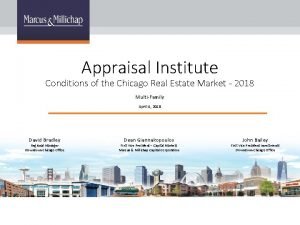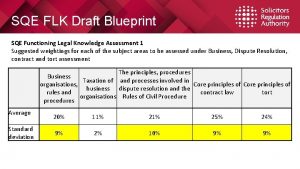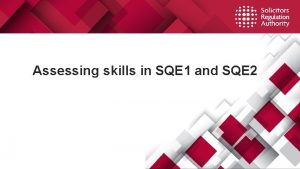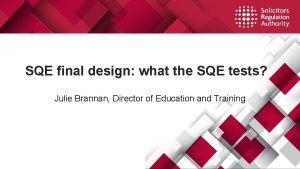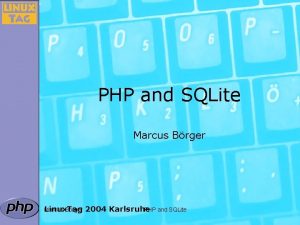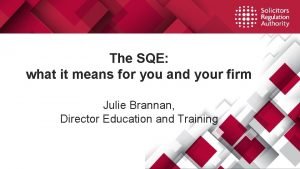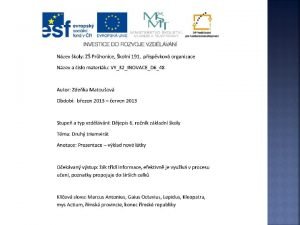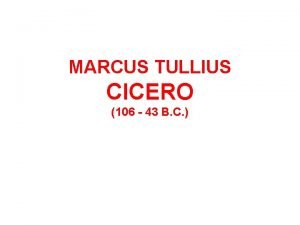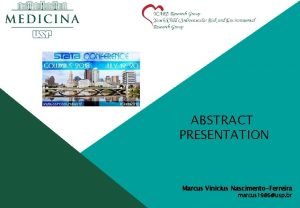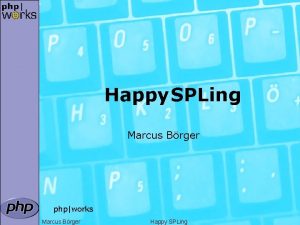ETHICS LEGAL ETHICS AND THE SQE Marcus KeppelPalmer
















- Slides: 16

ETHICS, LEGAL ETHICS AND THE SQE Marcus Keppel-Palmer UWE, Bristol @Marcus. Keppel @Keele. ALT

Overview Ethics in the SQE : Statements of Solicitor Competence Assessment Descriptors in Papers LLB Legal Ethics module at UWE LPC Professional Regulation at UWE Will this be “ethics” or “professional conduct” in the SQE

Statement of Solicitor Competence Current SRA Statement of Legal Knowledge: 1 a. The ethical concepts governing the solicitor's role and behaviour, including as expressed in the law, and the economic, social and cultural influences that can bias independent and ethical judgement On qualification Current LPC Outcomes (2011) only concern Code of Conduct and SRA Handbook Assessed as a pervasive in Business, Property and Litigation and separate PCR paper

SOSAC A 1. Act honestly and with integrity, in accordance with legal and regulatory requirements and the SRA Handbook and Code of Conduct, including: a) Recognising ethical issues and exercising effective judgment in addressing them. b) Understanding and applying the ethical concepts which govern their role and behaviour as a lawyer. c) Identifying the relevant SRA principles and rules of professional conduct and following them. d) Resisting pressure to condone, ignore or commit unethical behaviour e) Respecting diversity and acting fairly and inclusively.

Distinction drawn between ethical behaviour and professional conduct Ethical Professional Recognising ethical issues Exercising effective judgment Understanding the ethical concepts Applying the ethical concepts Resisting pressure to condone, ignore or commit unethical behaviour Respecting diversity Acting fairly and inclusively Identifying the relevant SRA principles Identifying rules of professional conduct Following rules of professional conduct

Assessment Descriptors SOSAC A 1 is to be assessed in context of all SQE 1 and SQE 2 assessments per June 2017 SQE 1 SQE 2 • Principles of Professional Conduct, Public and Administrative Law, and the Legal System of England Wales • Dispute Resolution in Contract or Tort • Property Law and Practice • Business Law and Practice • Wills and the Administration of Estates and Trusts • Criminal Law and Practice. • Client Interviewing • Advocacy/Persuasive Oral Communication • Case and Matter Analysis • Legal Research and Written Advice • Legal Drafting. Each assessed twice

Product of LETR and two consultations Most recent consultation was reported on in April 2017 and led to June 2017 Draft Assessment 268 Responses to second consultation, of which only 20 referred to ethics LETR had 190 references to Ethics. Even there was a distinction between “Legal Ethics” (14 mentions) and “Professional Ethics” (36 mentions)

A number of the consultation responses did not distinguish between ethics and professional conduct: JLD equated “ethics” with “a thorough understanding of the SRA Code of Conduct” Other responses queried the lack of prescribed training and the type of assessment: Linklaters “How can there be sufficient emphasis on professional conduct and ethical considerations which should be embedded within all legal education when there is no prescribed minimum content for preparatory training? ” Northumbria University

Teaching Legal Ethics Boon, Legal Ethics at the Initial Stage: A Model Curriculum (December 2010) Model Ethics Syllabus a. Ethics and Law: Law and morality; Civil and human rights; Life, liberty and security of person; equality before the law; discrimination and diversity. b. System ethics and the administration of justice: democratic values, e. g equality (including equality before the law) freedom, access to and control of power; natural justice; the rule of law; independence of the judiciary, lawyers' responsibilities for defending the rule of law and upholding the administration of justice. c. Regulation of legal services: Structure of the legal services market; Regulators and regulated; Statutory objectives and professional principles; Regulation of entities; Professional responsibility in the workplace. d. Theory of professionalism: Relationship to the state; Market control and reserved activities; Professional ideals. e. Legal professions: Professional values; Professional bodies; Business organisation. f. Professional regulation: Representative and regulatory functions of professional bodies; education, training and conduct; investigation and discipline. g. Professional ethics: Codes of conduct; Duty to the Court and to the administration of justice; Duties to clients; Loyalty; competence; confidentiality; conflicts of interest.

UWE LLB 3 rd Year module General Ethics Lawyers Values & Professionalism Lawyer-Client Relationship Fees, Costs, Complaints Confidentiality and Conflict of Interest Diversity, Culture, Negotiation and Dispute Resolution Business Ethics/Research Ethics

UWE Professional Conduct & Regulation (LPC) Three discrete workshops in a conveyancing setting 1: Principles; Initial Client Engagement letter; AML Checks 2: Financial Services; Conflict of Interest 3: Confidentiality; Money Laundering; Undertakings Additional (but limited coverage) in the core subjects.

UG module introduced students to nearly 40 theories and matters of regulation via the mini lectures, including examples from the SRA and the BSB Codes of Conduct. The teaching on the module was not in the didactic model, but a mixture of some lecture style, with a lot of discursive interactive socratic method, relevant to a topic such as ethics, which essentially looks at people’s personal and internalised reflection, intended to be explored through the interactions between the tutors, between the tutors and the students, and between the students themselves.

In supergroup class exercises included: one example is based on the Harvard discussion of ethical thinking (the trolley car) which illustrates that people often move to the middle when contextualising different thinking; another example (the draw a lawyer example) is based on the commonly used examples of considering professional identity and cultural stereotyping (and is used on a number of courses in UWE); another example is based on the Hofstede model of cultural dimensions; another example replicated the research on hierarchisation of language from a study at San Francisco.

Reflections Students felt more comfortable with the “regulation” topics than the “ethical” topics. Most gravitated in assessment to conflicts/ confidentiality, looking at and referencing SRA codes; BSB code on “cab-rank rule”. The more discursive topic most often picked was on diversity, with limited engagement with Hofstede’s Cultural Dimensions theory heavily interspersed with Equality Act 2010. Students lack in experience to understand the background to legal practice. Most have limited if any experience of a solicitor’s office.

Ethical problems emerge where values, principles or moral imperatives come into conflict. Many students are reticent to discuss their values and principles. Many students have not yet formed values and principles. Often there is a range of ethical responses to any scenario. The assessment descriptors state that students sitting SQE have to “Correctly identify issues of ethical and professional conduct and exercise judgment to resolve them honestly and with integrity. ” As George Russell said in his response, “ethics … are subjective concepts forged through someone’s background and experience”. Does a student sitting SQE 1 have sufficient background and expertise?

 Marcus and millichap research
Marcus and millichap research Marcus and associates
Marcus and associates Define micro and macro ethics
Define micro and macro ethics Hình ảnh bộ gõ cơ thể búng tay
Hình ảnh bộ gõ cơ thể búng tay Lp html
Lp html Bổ thể
Bổ thể Tỉ lệ cơ thể trẻ em
Tỉ lệ cơ thể trẻ em Voi kéo gỗ như thế nào
Voi kéo gỗ như thế nào Chụp phim tư thế worms-breton
Chụp phim tư thế worms-breton Hát lên người ơi alleluia
Hát lên người ơi alleluia Môn thể thao bắt đầu bằng từ đua
Môn thể thao bắt đầu bằng từ đua Thế nào là hệ số cao nhất
Thế nào là hệ số cao nhất Các châu lục và đại dương trên thế giới
Các châu lục và đại dương trên thế giới Công thức tính độ biến thiên đông lượng
Công thức tính độ biến thiên đông lượng Trời xanh đây là của chúng ta thể thơ
Trời xanh đây là của chúng ta thể thơ Mật thư tọa độ 5x5
Mật thư tọa độ 5x5 Phép trừ bù
Phép trừ bù
